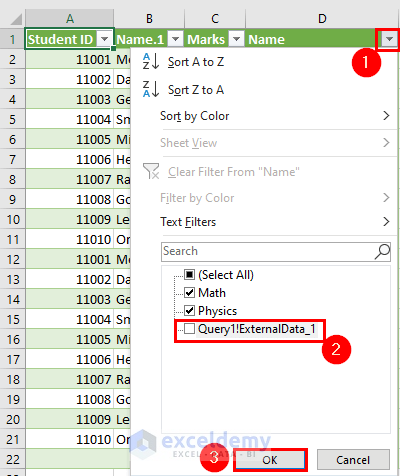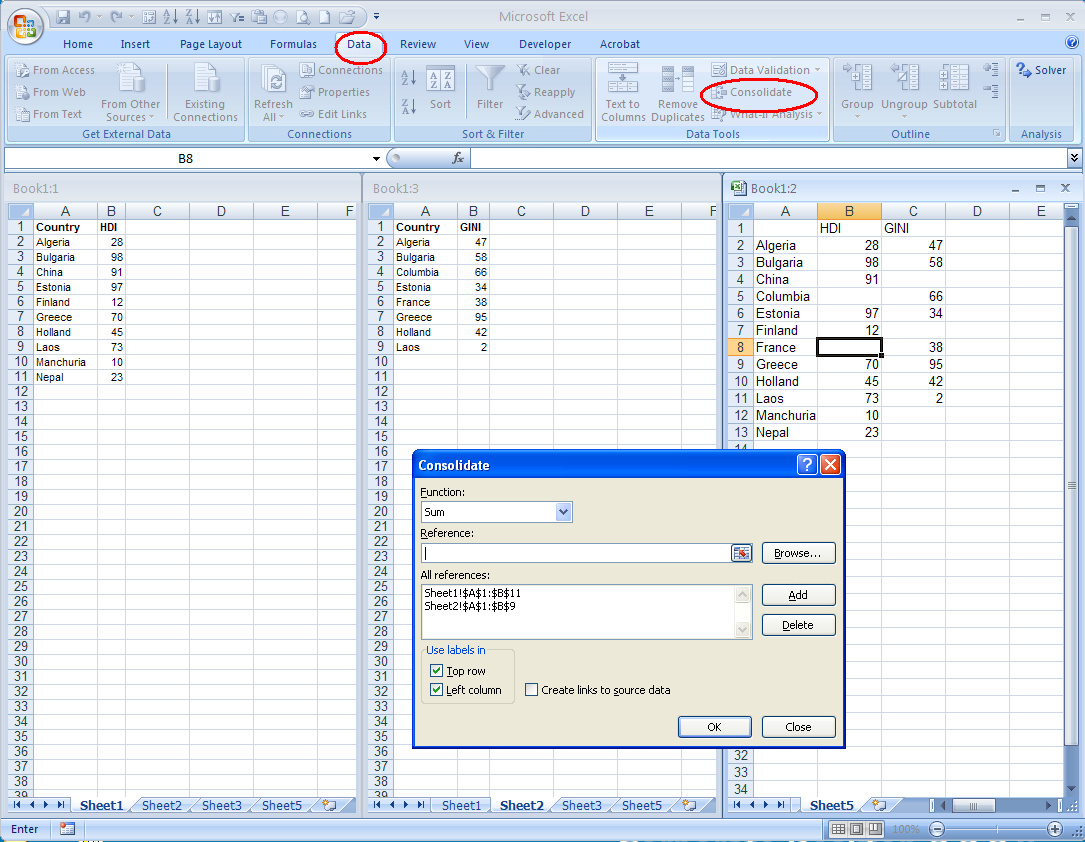Merge Excel Sheets: Simple Tips and Tricks

The magic of Excel's flexibility shines when you need to combine data from multiple Excel sheets into one. However, this task can sometimes appear daunting, especially if you're dealing with voluminous data or complex spreadsheets. In this guide, we'll share simple tips and tricks to make merging Excel sheets an effortless task.
Preparatory Steps Before Merging Excel Sheets

Before diving into the actual merging process, setting the stage properly can make everything run more smoothly:
- Check the Source Files: Ensure the Excel sheets you intend to merge have similar structures. Column headers and data types should match for easy merging.
- Backup Original Data: Always keep a copy of your original spreadsheets to prevent data loss in case of errors.
- Data Cleaning: Remove any extra spaces, ensure consistent formatting, and correct any discrepancies in the data entries.
- Plan Your Merge Strategy: Decide if you want to consolidate data by rows or columns, and consider the consequences of duplicate entries.
💾 Note: Remember to back up your original data before performing any merges. It's easy to overlook this step, but it can save you from significant headaches.
Manual Merging of Excel Sheets

For smaller datasets or when you prefer a hands-on approach, manual merging is straightforward:
- Open the First Workbook: Open the Excel file where you want to merge data or create a new workbook for merged data.
- Copy Data: Select the data range in the sheet you want to merge, then copy it using Ctrl+C or right-click and select ‘Copy’.
- Select Destination: Open the target sheet where you want to paste the data.
- Paste Data: Decide on the paste method (e.g., Paste Values if you want only data without formulas). Use Ctrl+V or right-click and select ‘Paste’.
- Repeat for All Sheets: Repeat the copy-paste process for each sheet until all data is merged.
📚 Note: Manual merging can be effective for small datasets but becomes time-consuming for larger ones or when dealing with numerous sheets.
Automating Excel Sheet Merging with VBA

For larger datasets or frequent merges, automating with VBA (Visual Basic for Applications) is beneficial:
- Create a VBA Script: In Excel, press Alt+F11 to open the VBA editor, then insert a new module.
- Write the Code: Use a script like this basic example to automate merging:
Sub MergeExcelFiles()
Dim ws As Worksheet
Dim wb As Workbook
Dim FileToOpen As Variant
Dim TargetWorkBook As Workbook
'Set Target Workbook to current workbook
Set TargetWorkBook = Application.ThisWorkbook
'Choose files to merge
FileToOpen = Application.GetOpenFilename(FileFilter:="Microsoft Excel Files (*.xls*), *.xls*", Title:="Select Files to Merge", MultiSelect:=True)
If IsArray(FileToOpen) Then
For Each FileItem In FileToOpen
Set wb = Workbooks.Open(FileItem)
For Each ws In wb.Worksheets
If ws.Name <> "Sheet1" Then 'Adjust sheet name as needed
ws.Copy After:=TargetWorkBook.Sheets(TargetWorkBook.Sheets.Count)
End If
Next ws
wb.Close savechanges:=False
Next FileItem
Else
MsgBox "No files selected."
End If
End Sub
Run the script by pressing F5 in the VBA editor or assign a button to it for ease of use.
| Benefit | Drawback |
|---|---|
| Automates repetitive tasks | Requires VBA knowledge |
| Saves time on large datasets | Potential for script errors |
| Can handle complex merging rules | Can be difficult for beginners to modify |

💻 Note: While VBA can automate merging, understanding Excel VBA is crucial. You might need to invest time in learning or modifying scripts.
Merging Excel Sheets with Power Query

Power Query, introduced in Excel 2010 and enhanced over time, is another powerful tool for merging data:
- Access Power Query: In Excel 2016 or later, select Data > Get Data > From File > From Workbook.
- Load Files: Navigate to each Excel file you want to merge and add them to the list.
- Combine Files: In Power Query Editor, you can combine files with the same structure.
- Refine Merging: Use Power Query’s interface to clean, transform, or filter the data before loading it into Excel.
- Load Data: Choose where to load the data in your workbook and hit Close & Load.
Power Query provides a visual interface for merging, making it user-friendly:
| Feature | Description |
|---|---|
| Intuitive Interface | Allows easy combining and transforming of data |
| Scalable | Handles numerous files without much performance hit |
| Maintains Data Integrity | Preserves data structure and integrity during merging |
Tips for Merging Sheets

Here are some practical tips to consider when merging Excel sheets:
- Ensure Consistent Column Headers: Standardize column headers across all sheets to avoid confusion during merging.
- Avoid Overlapping Data: If data might overlap, decide on a merging strategy like overwriting, adding, or appending.
- Check for Duplicate Data: Excel can automatically remove duplicates, or you can manually check for them.
- Use Named Ranges: Named ranges can simplify merging and referencing data in formulas.
- Save Intermediate Steps: If the merging process involves multiple steps, save your work at each stage to avoid potential data loss.
📝 Note: When dealing with large datasets or frequent merges, consider investing time in learning Power Query, which can greatly streamline your data manipulation tasks.
Merging Excel sheets doesn't need to be a daunting task. With these strategies, you can ensure efficient and accurate data consolidation. Whether through manual methods, VBA scripting, or Power Query, the approach you choose will depend on the scale, complexity, and frequency of your merging needs. Regularly backing up data, keeping your files clean, and choosing the right method can make this essential business task a smooth and rewarding process.
Can I automate merging multiple Excel files?

+
Yes, you can automate merging Excel files with VBA scripting or Power Query for more complex scenarios.
What if my Excel files have different structures?

+
You might need to manually align the data or use more advanced scripting to handle mismatched structures effectively.
How do I handle duplicate entries when merging sheets?

+
Excel has features to remove duplicates, or you can use Power Query to consolidate data and manage duplicates more effectively.



